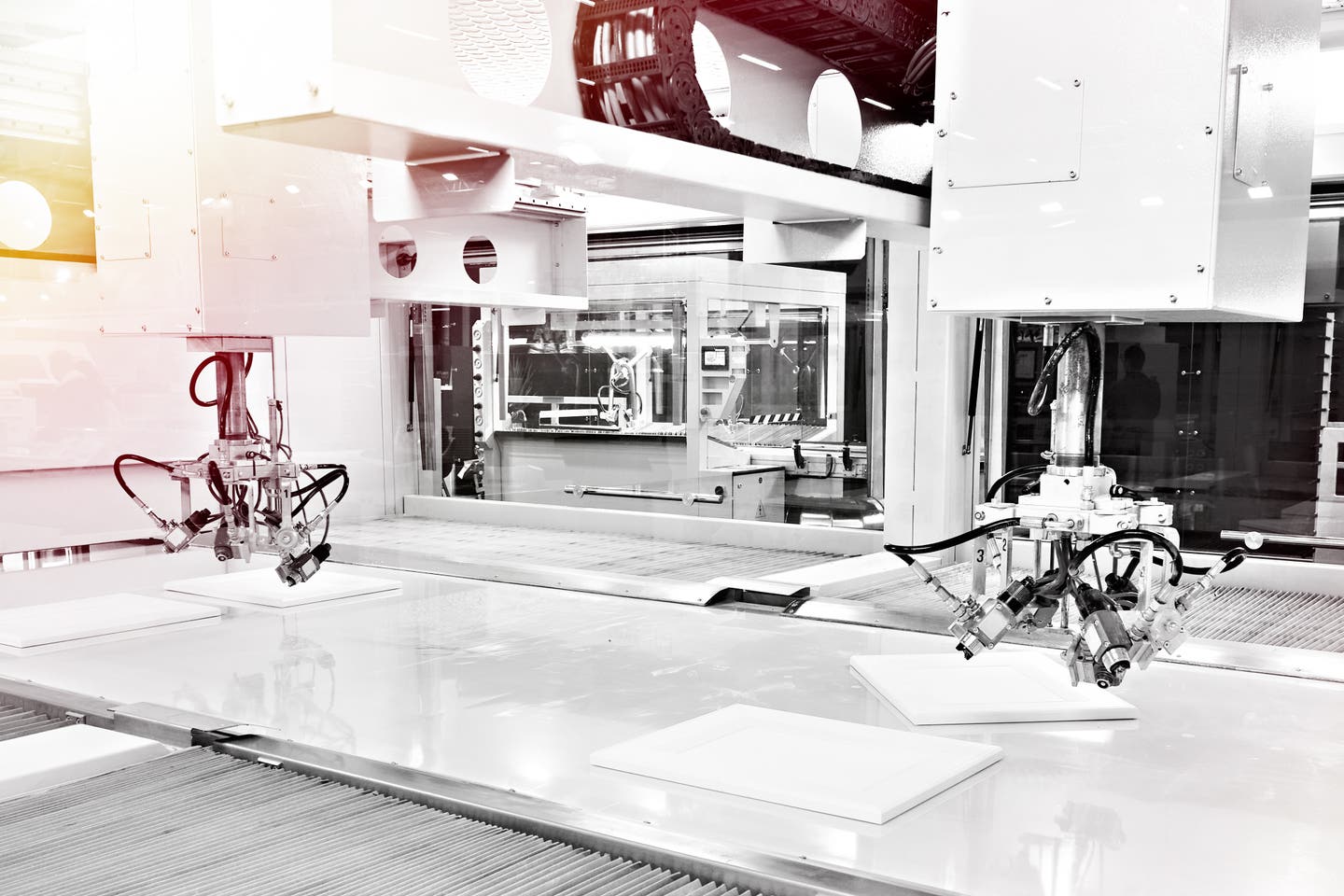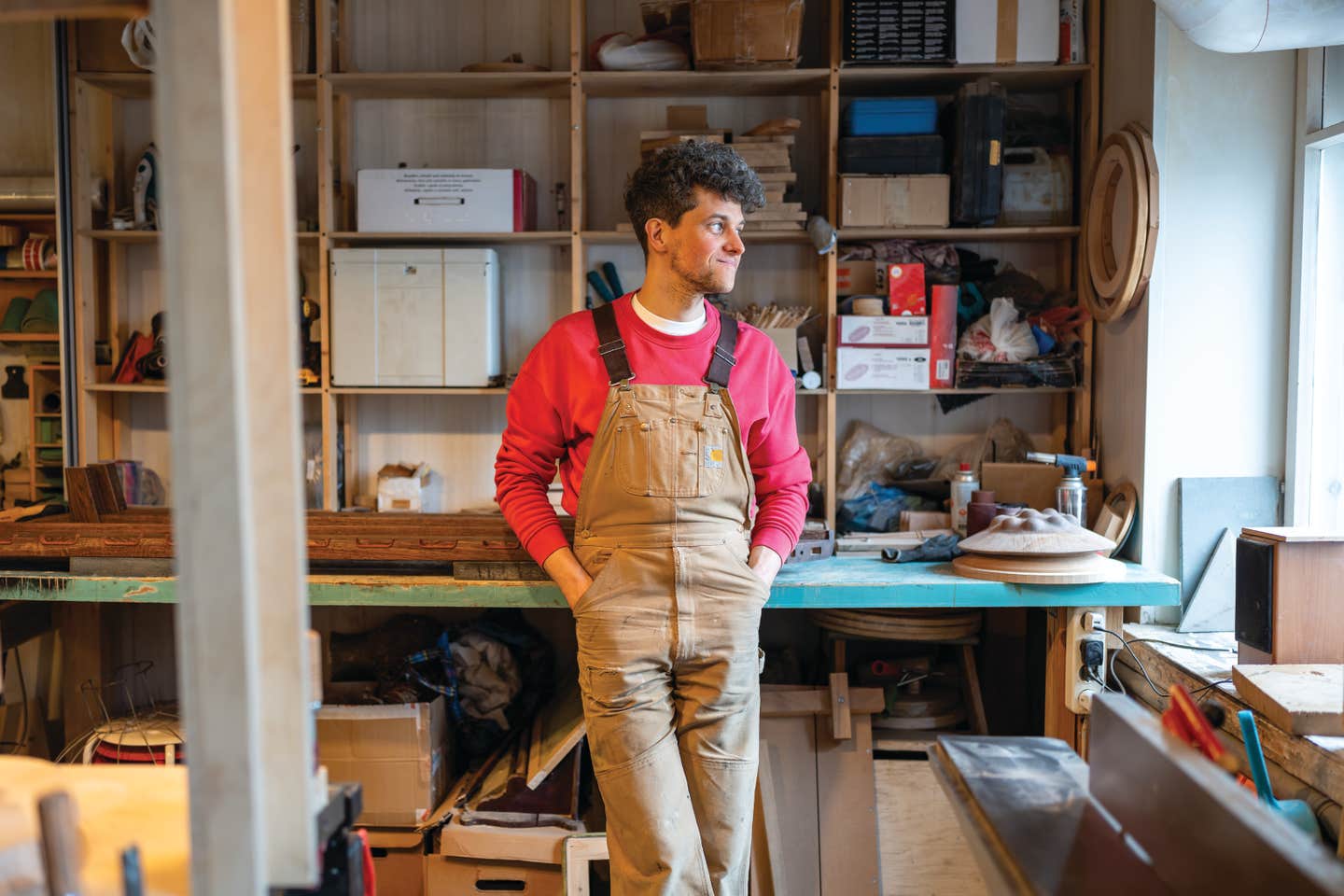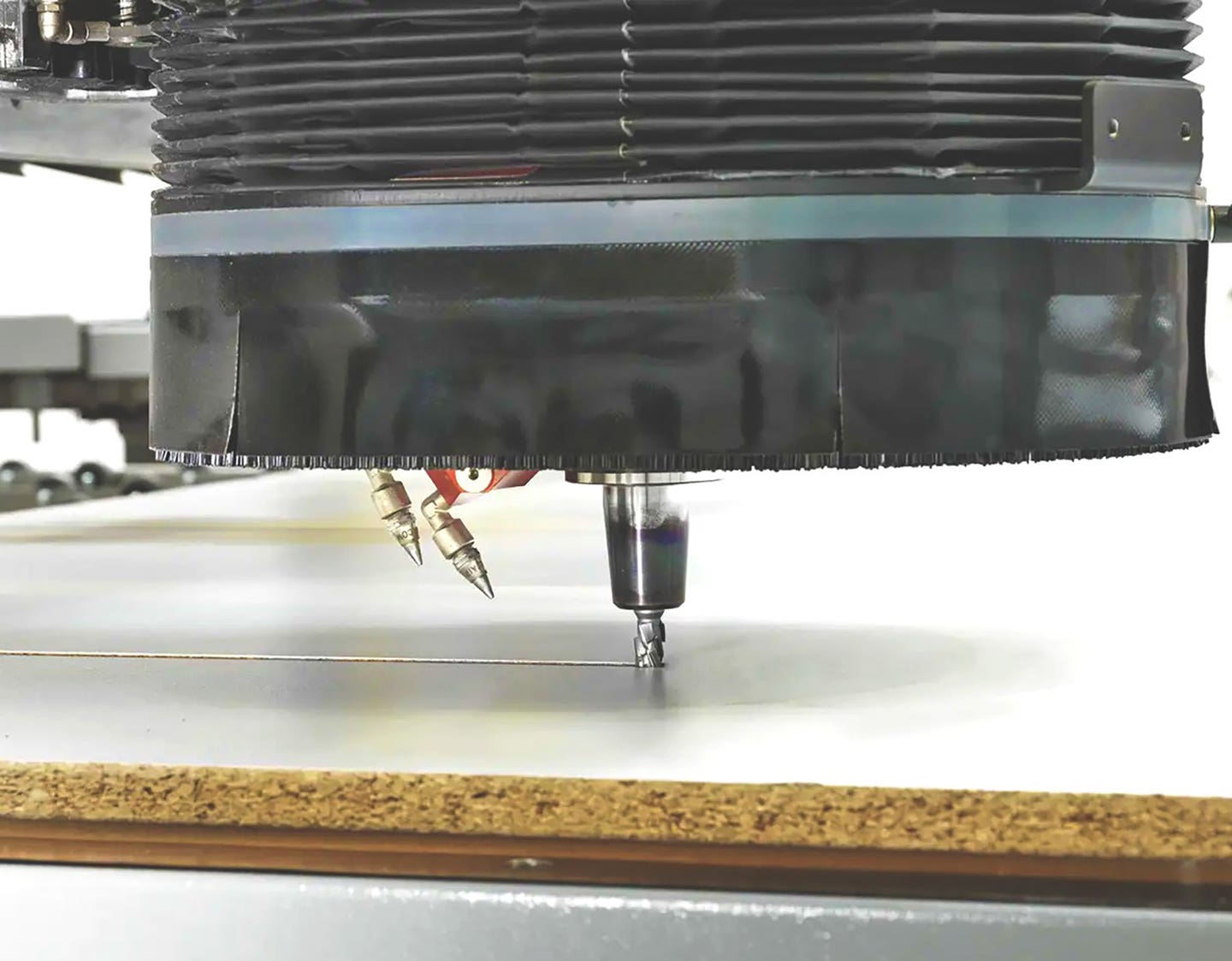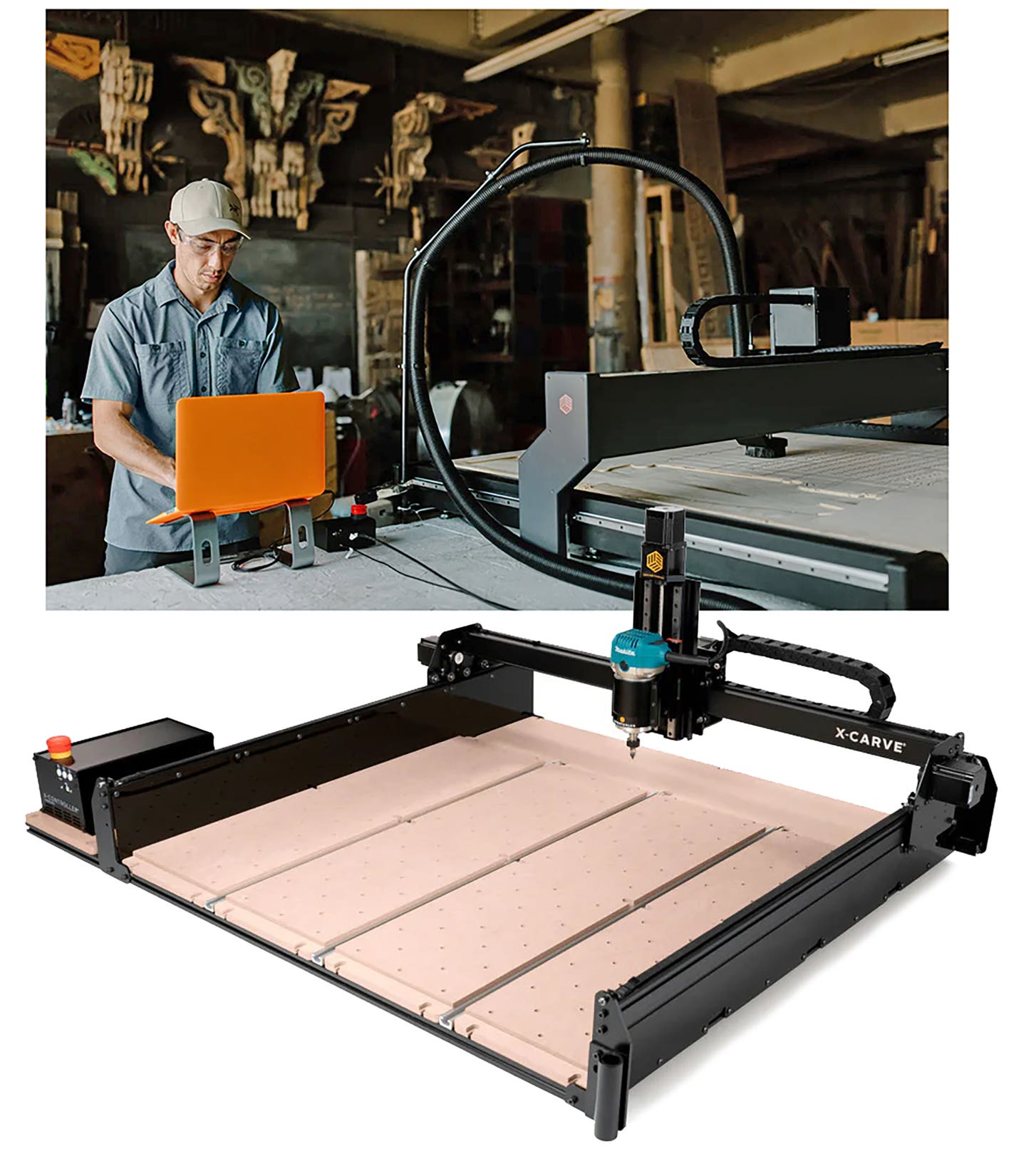Going from craftsman to businessman
When Tony Mason’s custom millwork business failed the first time around, he swallowed his pride and kept at it. That’s because he has an incredible entrepreneurial spirit. Mason first established…
When Tony Mason's custom millwork business failed the first time around, he swallowed his pride and kept at it. That's because he has an incredible entrepreneurial spirit. Mason first established Mason Woods of Whately, Mass., in the late '80s, but closed the operation less than five years later after realizing that even though he was an excellent craftsman, he was a lousy businessman. His major flaw was charging prices that were much too low, which he finally learned how to correct after working at a commercial shop. Now, with help from his son and guidance from his 83-year-old father, the shop is back up and running with more work than it can handle.
"We cannot compete with larger mill shops, on their terms anyway," says Mason. "We focus on medium- to high-end custom work and compete by providing high quality and service, working with clients in initial phases of design, providing education and offering resources. By generally going the extra mile, even when getting the job seems remote, we usually end up getting it."
Mason Woods produces custom woodworking of all types, including cabinetry, furniture, mantles, doors, columns, flooring, moldings, and timber frame components. They offer an entire line of furniture made of reclaimed antique materials to high-end markets in New York and Connecticut. Clients include architects, designers and contractors, as well as the general public.
The facility is located on a 125-acre property that features a sawmill and kiln, which allows Mason to offer additional services that include drying lumber for local sawyers and loggers. In the near future, Mason is planning on harvesting the native lumber on the property to supplement his income and meet the demand for flooring and molding products in New England.
First time around
Mason studied electronics at Springfield Technical Community College in Springfield, Mass., and got a job with Coulter Electronics Inc., servicing blood analyzing equipment in his early 20s. He was married and starting a family, and eventually moved to Rhode Island for work. By the time his second son was on the way, he began to feel the burnout from a high-pressure job.
"I drove all over New England repairing blood analyzers. It was great money but I was on the road constantly and had to worry about blood-borne diseases and things like that. I actually quit the day I drove my car into a light pole."
But Mason was without a backup plan. He took side work in the construction industry and eventually became self-employed as a carpenter in Providence, R.I.
In 1984, Mason started building a house on his parents' property in Whately. It took three years to finish, but along the way Mason got hooked on woodworking.
"From my years in carpentry I started to see there were a lot of things I could build, starting with doors, because I remember having to buy them for a lot of my jobs."
He officially started Mason Woods as a custom shop. Early jobs were primarily for doors, moldings and floors, which Mason got through carpentry contacts and word of mouth. He also started drying lumber, since his father had set up a kiln on the property.
But the first Mason Woods had a very lean existence. In retrospect, Mason acknowledges that its failure was due to his lack of business skills.
"I did estimates but then looked at the number and said, 'I wouldn't pay that!' I'd knock down the price and, surprise, I was poor," said Mason.
The shop was closed in 1997, but Mason was able to keep the lumber drying part of the business going.
Invaluable experience
The same week that the shop closed, Mason took a position with Architectural Timber and Millwork in Hadley, Mass. He stayed for seven years, rising to the positions of the millwork department manager and production manager.
"This term of employment proved invaluable to our current efforts at Mason Woods," said Mason. "I gained a wealth of knowledge in how to sustain a business, which included how to budget time and do proper job costing estimates, how to determine the hidden costs of a shop hourly rate, [learning] what jobs are more lucrative and those that should not be accepted, and how to manage personnel and deal with clients."
He also increased his knowledge base of technical skills, particularly for production work.
"[Owner Tom Harris] didn't really know the skills that I had and just plugged me into his flooring department where I was pushing boards through the machine all day long," said Mason. "I remember somebody asking me, 'Why are you always smiling and singing all the time?' I said, 'Because I feel like I'm on vacation.'
"It was a break. After running your own business and failing, then you get to go home after work and live your life, it was like vacation."
Mason's two sons came to work at the shop as well. His oldest, Mike, aspired to be a police officer and worked part-time while he completed college. But woodworking seemed destined for his younger son Chris, now 26.
"One of the most valuable assets earned during this period was the experience that Chris received as a woodworker," said Mason. "For five years under my tutelage and that of another department manager, he became a very accomplished craftsman. Despite my bias, I can honestly say that he's a 'natural' at what he does. His quality of work is exceptional and there's a plus — he's faster than me. As a production manager this is a trait I've always stressed and very much appreciate."
And then it was time to try again. Relying on his wife Debbie's unfailing intuition and constant support, Mason left his position at the mill in February 2004 and used the equity from their home to reopen his mill shop. But a year later, the business was again on thin ice.
"In 2005, our expenses exceeded our income by almost $37,000," said Mason. "These expenses were driven almost entirely by start-up costs. The four biggest factors were non-billable payroll expenses — which is a double-edged sword — to repair our older equipment and develop new production systems, the cost of equipment and parts for repair, large material purchases, mostly reclaimed inventory, and new equipment and tool purchases."
To get the business back on a positive path, Mason instituted an advertising campaign.
"I had all kinds of ideas including a Web site, but the one that worked the best was what my dad suggested and my wife took care of, almost without me knowing it. I got a call from Bill Austin [owner of Austin Design Inc. in Colrain, Mass.], who said he had my brochure in front of him. I said 'What brochure?' That was the start of the comeback."
Half and half
Mason's clientele is about half residential and half commercial. He acquires work by following leads from architects and builders, through marketing brochures and the company Web site, and exhibiting at a local craft fair.
"In the last 24 months we have earned over 15 commercial clients and numerous residential customers for our millwork, drying and milling services," said Mason.
Most clients are from New England, but orders have also originated from Minnesota, Texas and Florida.
"We got a call from Hollywood once but they couldn't afford us," Mason said, referring to a request for a 1,600-square-foot parquet floor that was needed in just three weeks. Mason quoted a price of approximately $40,000.
Mason draws all of the shop's custom work, even if it's just a sketch to convey an idea, and uses AutoCAD LT software. For clients who aren't sure what they want, Mason enjoys coming up with his own designs. For clients with architects, it's usually a three-way conversation via e-mail and involves numerous sketches.
About 20 percent of the shop's commissions are free-standing furniture, made from reclaimed woods. Mason has been collecting reclaimed wood — particularly chestnut, heart pine, spruce and oak — since 1997. The reclaimed wood inspired a line of tables, which have been featured in Architectural Digest and House and Garden magazines.
"To date, our customers seem very pleased with both the quality of our work as well as our commitment to service, as is evident by the amount of referrals we have been receiving," said Mason.
The land and shop
Mason's 1,500-square-foot shop is located in the rural, central part of the state. It used to be the main building of a children's summer camp, which Mason's father founded and ran for nearly 20 years.
It features two Nyle dry kilns, a Bellsaw 16' circular sawmill, edge/straight-line rip saw and 12" planer, Logosol PH260 four-sided planer/molder, Bridgewood 16" wide belt sander, Laguna 24" band saw, Delta 10" Unisaw, Grizzly 24" planer and 9" oscillating spindle sander, 6" x 60" Boice-Crane stroke sander, Woodmaster 24" planer and 12" drum sander, Dustkop 7.5-hp dust system, Clark forklift, and International Harvester 175C crawler/loader.
Masson Woods finishes its cabinetry with tung oil and/or a clear conversion varnish. The rest of the products are shipped unfinished.
Mason says his next step will be to coordinate with a good friend, Dave Lashway, who owns a sawmill, Highland Community Lumber in Goshen, Mass. The two will log, saw and dry timber off Mason's land and produce a line of flooring, decking, paneling and molding. The land features red, black and white oak, maple, ash, sycamore, birch, beech, shagbark hickory, cottonwood, hemlock and Eastern white pine.
"I'd like to focus on the under-utilized woods which are way more interesting anyway," said Mason. "We will be building a barn to house our small sawmill and for some badly needed dry storage. This will also enable us to develop a real inventory of native lumber for our millwork projects."
Contact: Mason Woods, P.O. Box 115, Whately, MA 01093. Tel: 413-665-4727. www.masonwoods.com






